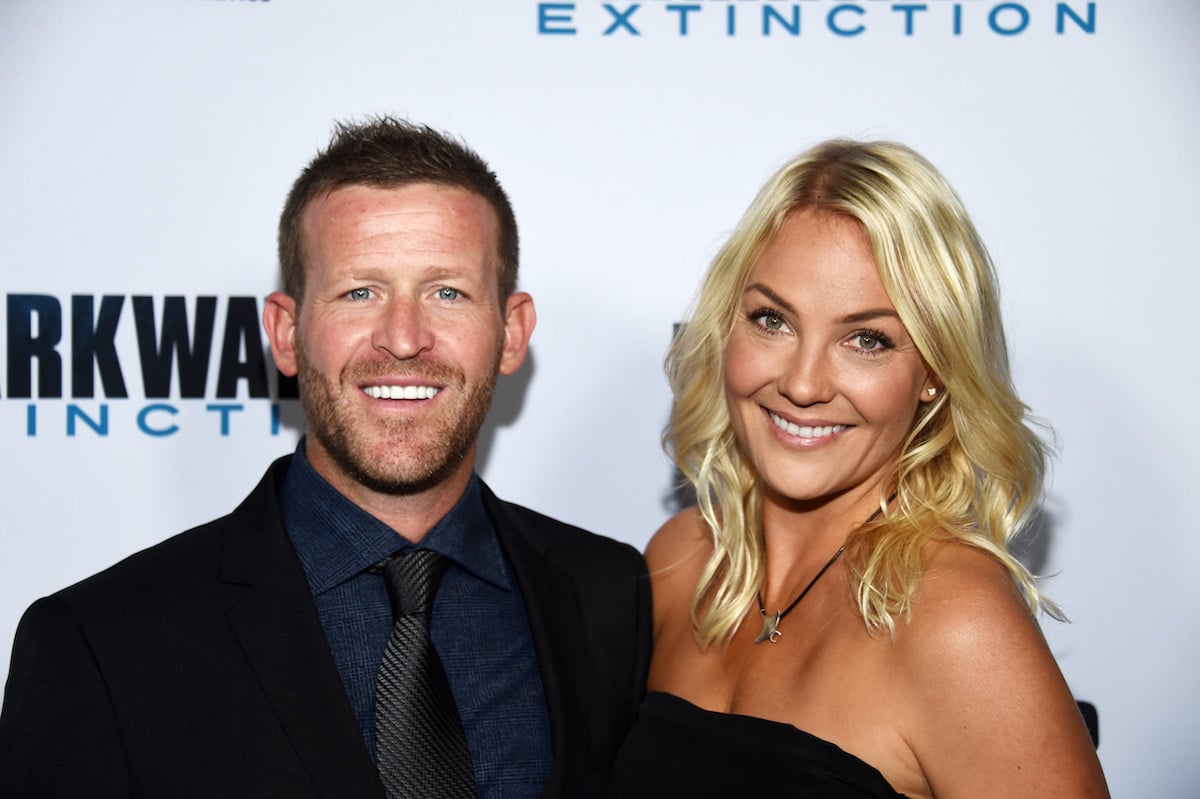‘Shark Week’ Cameraman Reveals What No Filmmaker Has Been Able to Catch
Discovery Channel’s annual Shark Week is an event that brings all sorts of animal and reality TV lovers together. Emmy-winning wildlife cameraman Andy Casagrande reveals what it takes to film the weeklong event and what filmmakers have yet to capture.
Andy Casagrande has over 40 ‘Shark Week’ credits to his name

As cinematographer for Discovery Channel’s annual Shark Week projects, wildlife filmmaker Andy Brandy Casagrande is changing conversations around sharks.
While most marine biology aficionados took the traditional university approach, Casagrande switched majors multiple times and studied at sea. He earned a dive certification in Monterey Bay which led to volunteer work in Cape Town, South Africa where the BBC, Discovery, and National Geographic often filmed.
“Somehow I impressed the producer and the director and at the end of a three weeks shoot they offered me a staff job at National Geographic,” Casagrande told Oceano Graphic Magazine. “So I moved to Washington DC and started my professional career as a filmmaker.”
Casagrande spent years filming wildlife all over the world. But, the field is competitive, according to Mental Floss.
“I get about a hundred emails a month from people who want to do what I do,” Casagrande said. “Something about sharks just captivates the world. You get to travel to these really pristine, remote places around the world. You’re diving in amazing conditions with amazing predators.”
As a filmmaker who is known for diving into open water without a cage, Casagrande’s work with the Discovery Channel lends itself to the bigger conversations about sharks.
I think Shark Week ultimately creates a bigger fascination and it’s made the shark the most famous wild creature on Earth — they’ve become this cult icon of nature.
When you create awareness, you get celebrities speaking out against shark-finning. It’s definitely creating a buzz around sharks that in my opinion is way more positive than negative because the people that are afraid of sharks aren’t the ones who are going out there cutting their fins off and selling them on the high seas at a high profit. So the more focus people have on their plight the better off we’ll all be.
Oceano Graphic Magazine
Casagrande explains what shark activity no one has captured on film
Shark Week has grown in popularity over the years, giving more insight into sharks’ motivation and migration patterns. And while many were scarred from movies like Jaws, they each have their own personality.
“A lot of past and current programming focusing on sharks is usually based around fear. For me it was never a fear thing,” he said. “When I saw sharks with the first time I was just fascinated. The reality is is that’s it’s a creature that we live with on this planet – we need to coexist with it and understand it, and the only way to do that is by continuing to show people that they are cognitive animals.”
That said, there’s one thing sharks do that hasn’t yet been captured during Shark Week or any other time.
“The holy grail for most shark filmmakers would be to capture great white sharks mating,” Casagrande said. “No one’s ever witnessed it. There’s no video proof or satellite data or anything to show when, where, and how white sharks mate.”
‘Shark Week’ offered Casagrande plenty of near-death experiences
Casagrande said it often takes around underwater cameras at different angles to capture a shark in slow motion. One of his closest near-death encounters happened during Shark Week for Into the Shark Bite in Cape Town.
“I was so focused on filming the sharks I started to breathe and felt it was really hard to breathe, which means in scuba-diving gear you’re running out of air and you have only a few breaths left,” he told the Wall Street Journal.
“I was about 65-feet deep so I had to break my number one rule which is ‘don’t act like prey or they will treat you like prey’. So, I had to swim up to the surface pretty quickly, because it was either like ‘I’m going to drown or I’m going to have to stick around here with the sharks, and that’s not going to be good either.”
Casagrande explained that he swam up to the boat and a shark chased him. He turned to bump the shark’s nose with his camera to “deter” the shark “momentarily.”
The expert diver learned his lesson, deciding no shot is worth sticking around for when air is compromised. Regardless, his work makes for great viewing year after year.


